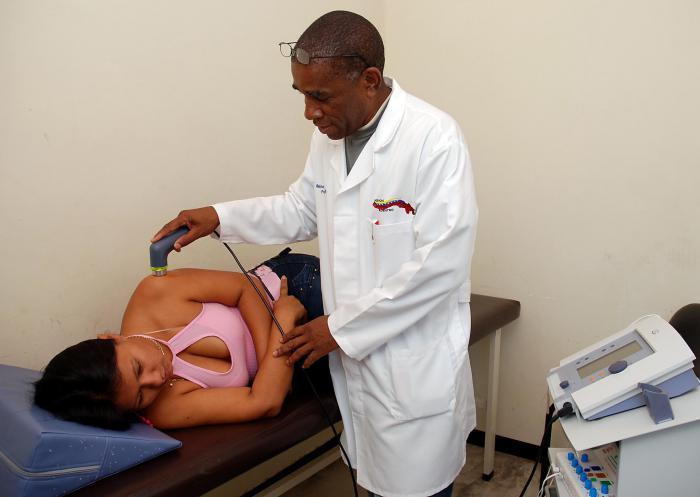Cuban doctors are still there, where they are most needed

Date:
Source:
Author:
Some 600,000 Cubans have provided medical assistance in 165 countries.
May 23, 1963 marked a milestone in Cuba's history. On that day, a plane transported 29 doctors, four stomatologists, 14 nurses and seven health technicians to Algeria to provide permanent services to that people.
This was the first Cuban internationalist medical mission, which in 60 years has been present in 165 countries, with more than 600,000 collaborators, according to Dr. Michael Cabrera, director of the Central Unit for Medical Collaboration (UCCM).
"We have served people from all continents, mainly those who live in hard-to-reach places and rural areas. Also in countries far away from Cuba, such as the Pacific islands, in some 30 in Africa, in most of the Caribbean territories and in a large number of Latin American nations."
-The most important moments in that history?
I think of when Commander-in-Chief Fidel Castro Ruz promoted the Integral Health Program in 1998, after Hurricanes Mitch and George hit Central America.
"The beginning of the Medical Mission in Venezuela, the largest, because of the number of Cubans included in it, and because of the large number of territories it has covered. There, a public, free and universal health system was developed, very similar to the Cuban one, implementing the three levels of assistance: primary for community care, secondary for services by specialties, and tertiary for specialized treatments.
"We cannot fail to mention the creation of the Henry Reeve Contingent in 2005, to attend disasters and serious epidemics. To date, more than 90 brigades were activated, some that marked history, as when the earthquake in Pakistan, the earthquake in Indonesia, Nepal, the earthquake in Haiti and, of course, the confrontation with Ebola, in Africa.
"We must mention the fight against COVID-19, when we were present in 42 countries, with 58 medical brigades.
"Today, we have 54 brigades with more than 22,600 collaborators, who respond to the needs expressed by each of the governments that request our services. We never go anywhere to impose our health system or our criteria; we only adjust to the needs of each place, to attend to its population."
-The U.S. Government insists on making people believe that Cuban medical collaboration is a type of modern exploitation.
-This is a slander. All those who go on medical missions go voluntarily, with the sole commitment to collaborate.
"Those of us who direct the collaboration and the main cadres of the Cuban Ministry of Public Health have been collaborators at one time or another. For all of us it is a unique and enriching professional experience.
"In each of the countries we only help the population to improve their health problems. Each of our doctors goes consciously, with the desire to contribute to their family income, to their people and to the country's economy.
"What is generated in each of these missions is used in Cuba for the sustainability of the National Public Health System. The cooperants know it, and their contributions improve the working conditions of the institutions, hospitals, polyclinics and clinics.
"Despite this unhealthy campaign, the prestige of our medicine in the world continues to rise. Today we have requests from all continents, even from First World countries, some of them in Europe. We will continue in the places where it is most needed".
-Recently, the U.S. Government imposed two other measures that are detrimental to Cuban medical collaboration; first, to sanction the countries that receive brigades and, second, to extend the privileges of those who defect?
-This is part of the same line of thought of destroying the work of the Revolution, especially one of the most brilliant ideas: that of providing solidarity to those most in need.
"We are convinced that no strategy will be able to put an end to the aid and assistance we can provide because, in spite of those measures, requests for more Cuban cooperation have increased."
-What has been your experience as a collaborator?
-When I was 25 years old I joined the medical brigade in Guatemala, only one year after graduating, and I had to assist in the mountains. Then I went on to other important missions, such as Venezuela, Dominica and Nicaragua.
"They all contributed to my training as a doctor. The experience is always a learning experience. When I leave, I always get a lump in my throat. We left many friends and sadness invades us, for being part of a community that welcomed us as one more of them.
"Cuban doctors are characterized by brotherhood, humanism, stoically helping, and that identifies us before the professionals of the rest of the world. We are neither better nor worse, but different".






